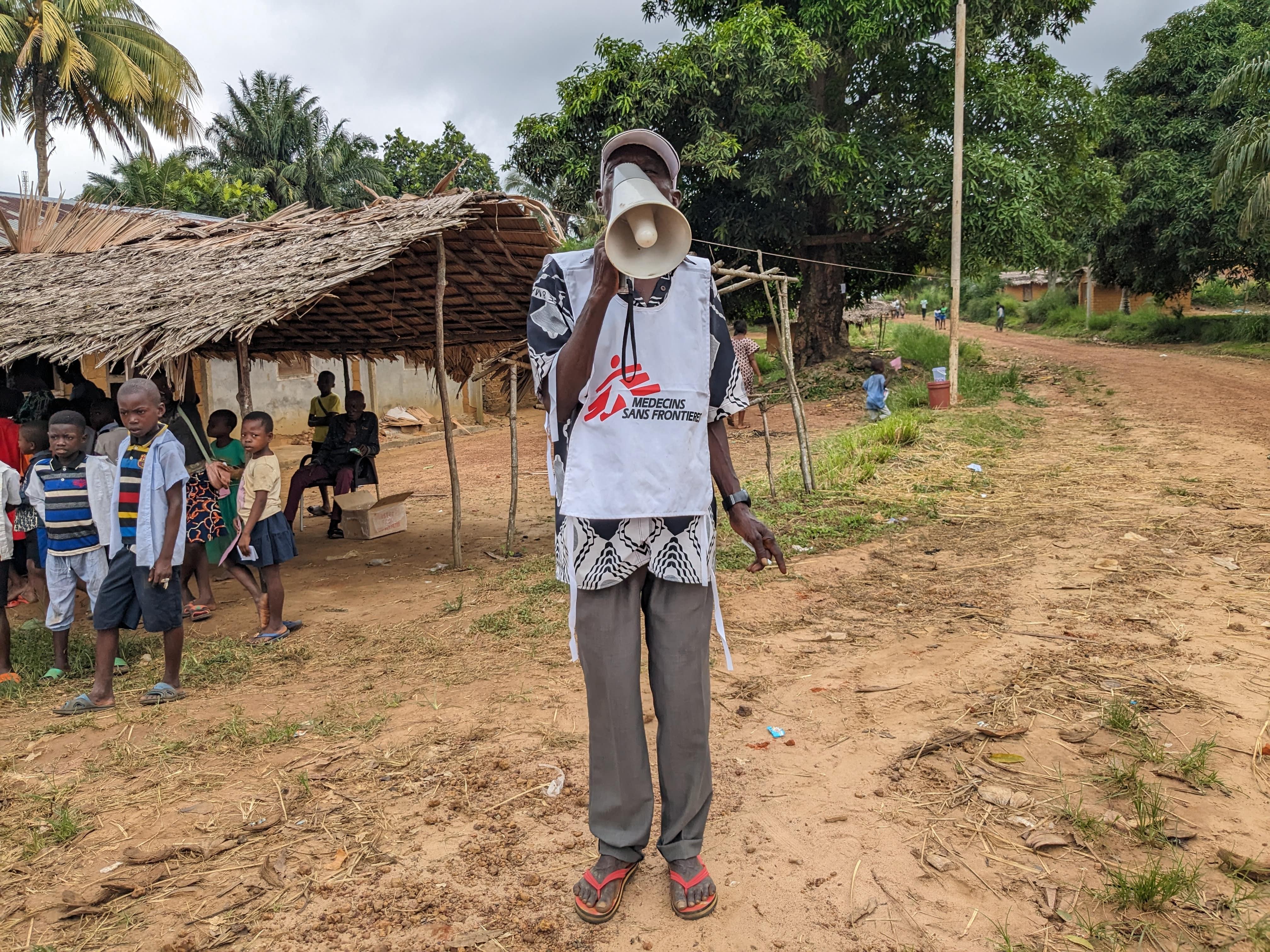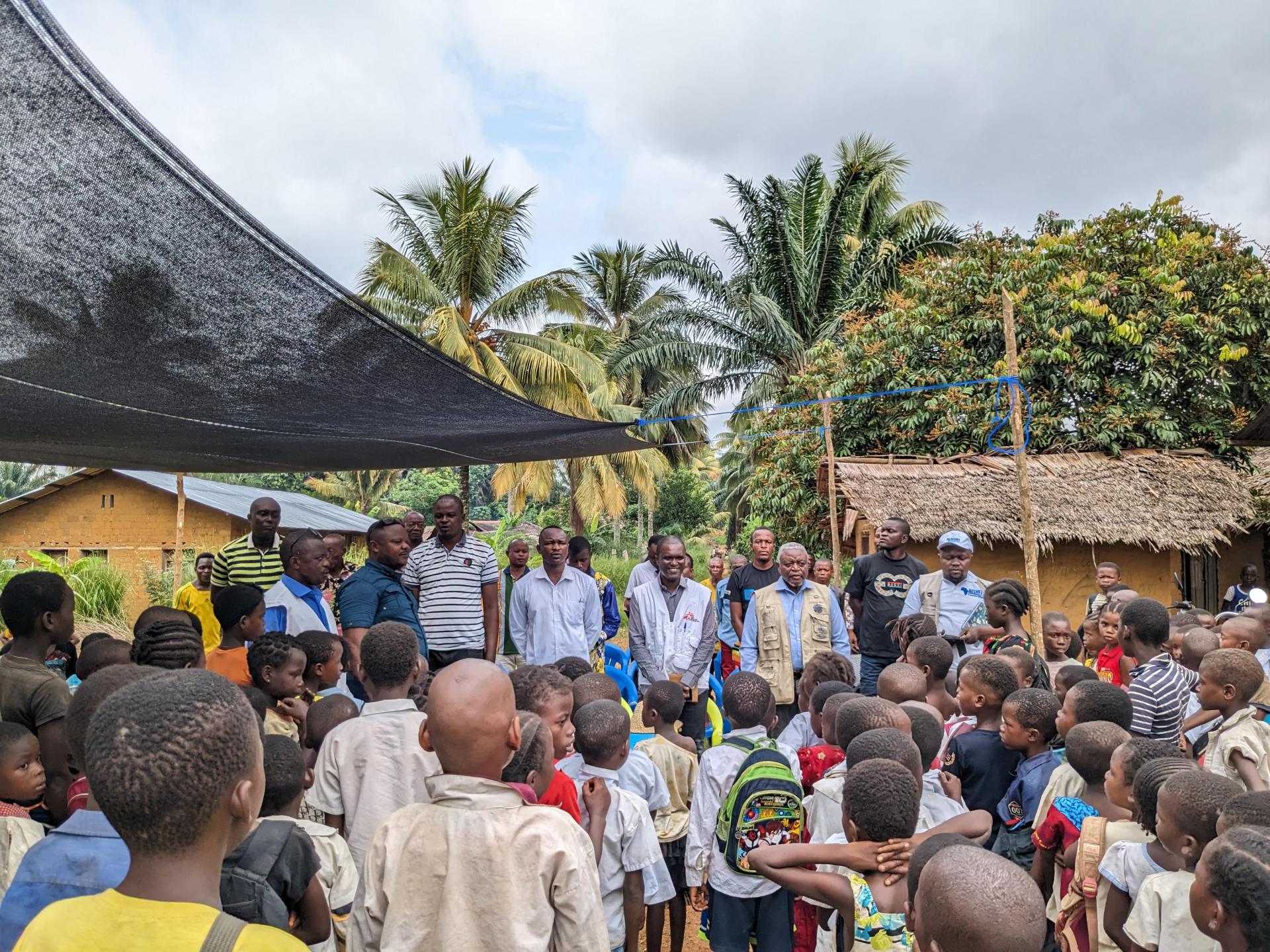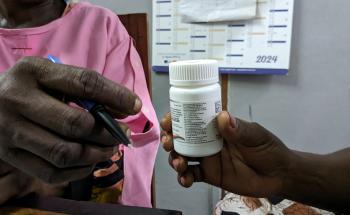A new measles outbreak in the Ingende health zone, Equateur province, has prompted Doctors Without Borders (MSF) to launch a MSF emergency response team to treat and vaccinate children.
This is not the first measles epidemic in Ingende. After a measles surge last year, Congolese health authorities conducted a vaccination campaign in September 2023 as part of a “Supplementary Immunization Activities” (SIA) initiative. Unfortunately, due to difficulties reaching certain areas, the campaign only covered 80% of children, insufficient to halt the spread of this highly contagious virus. A person with measles can infect up to 90% of unvaccinated individuals nearby.
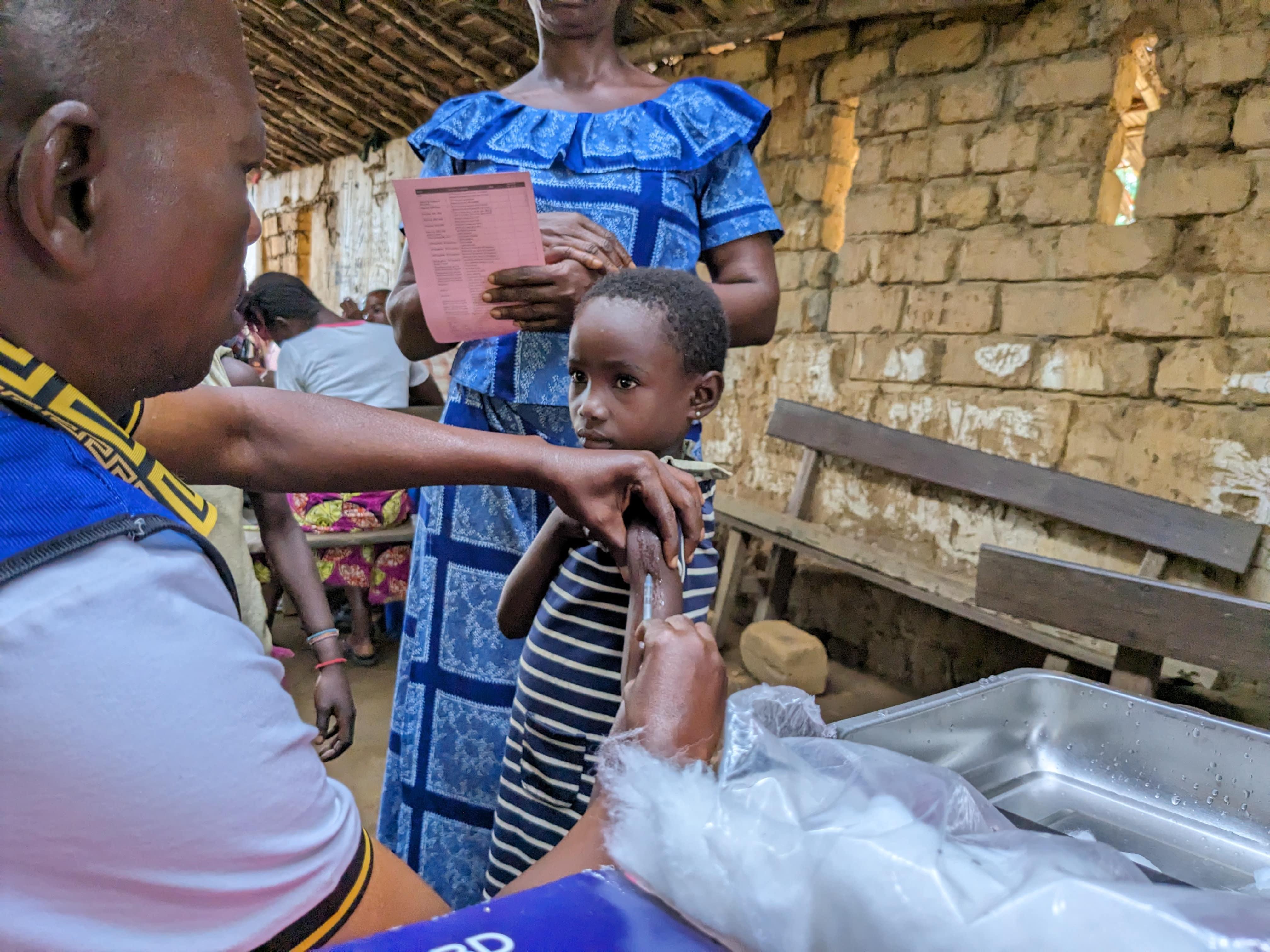
Logistical and Human Challenges
Given the shortcomings of the 2023 campaign, measles cases surged again in 2024. MSF intervened to support the Ministry of Health by ensuring optimal vaccination coverage and supporting patient care in two hospitals and four health centres.
"Reaching remote areas in the equatorial forest is a logistical challenge," says Jean-Jacques Stéphane Nfon Dibie, coordinator of MSF’s “Congo Emergency Pool”, OE of the mobile MSF emergency teams from MSF in DRC.
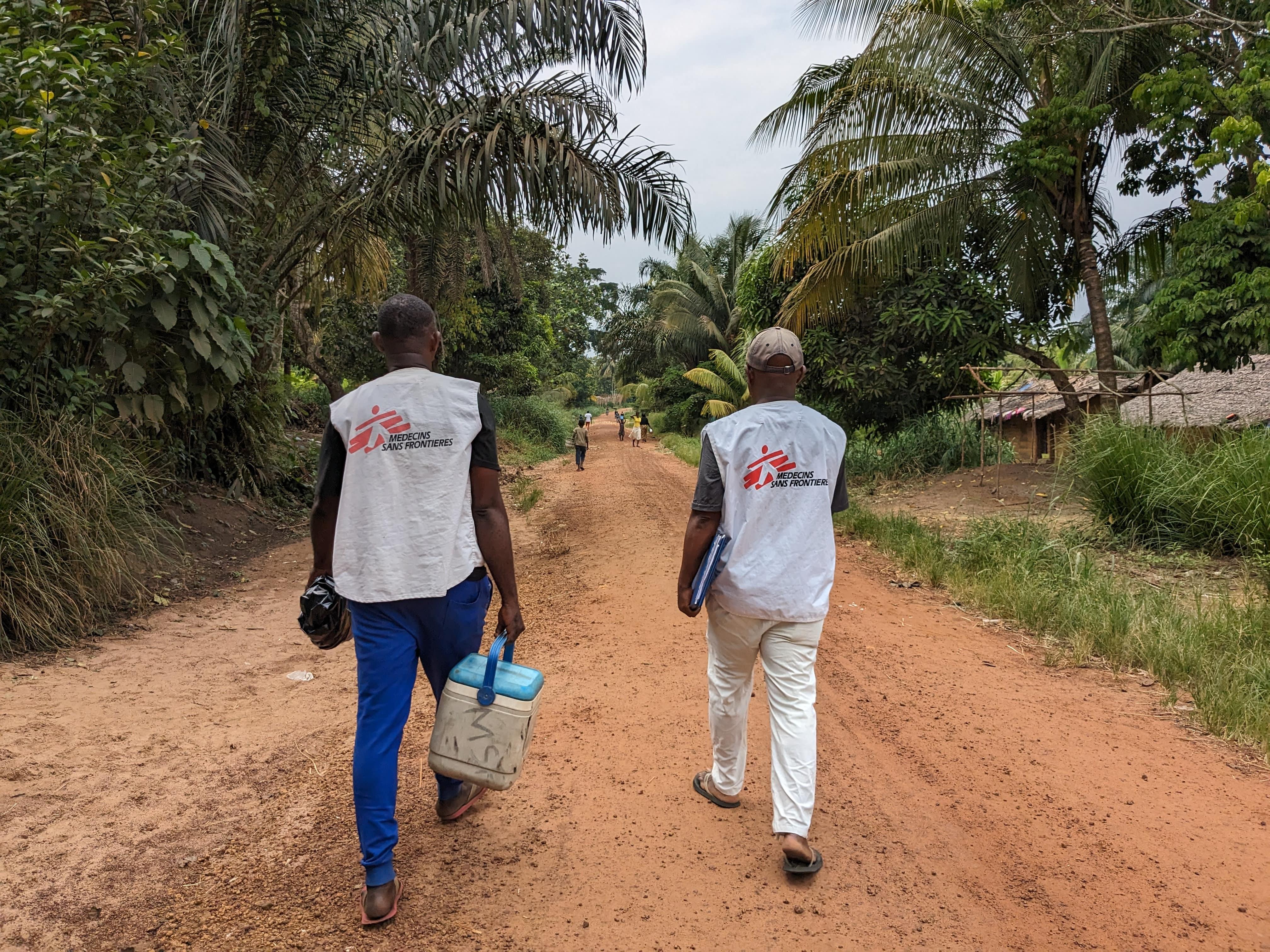
"The Ingende zone has 18 health areas, more than half of which are hard to reach. Local health authorities lack the logistical resources to cover all areas. Vaccines must be kept refrigerated, so transporting them on foot is often not possible. We've deployed motorbikes and motorised pirogues to ensure every health area is reached. This is essential for the success of vaccination campaigns.”
In addition to logistical support, MSF focused on involving all communities in the response, especially indigenous peoples in remote areas who were previously under-involved.
"In some communities, this led to frustration and mistrust of health campaigns," explains Dr. Thomas Holebanga, leader of the MSF intervention in Ingende. "No one should be left out when it comes to measles, as this risks the virus continuing to spread. Ensuring every community is aware of the disease and involved in its treatment and vaccination was our priority, and it paid off."
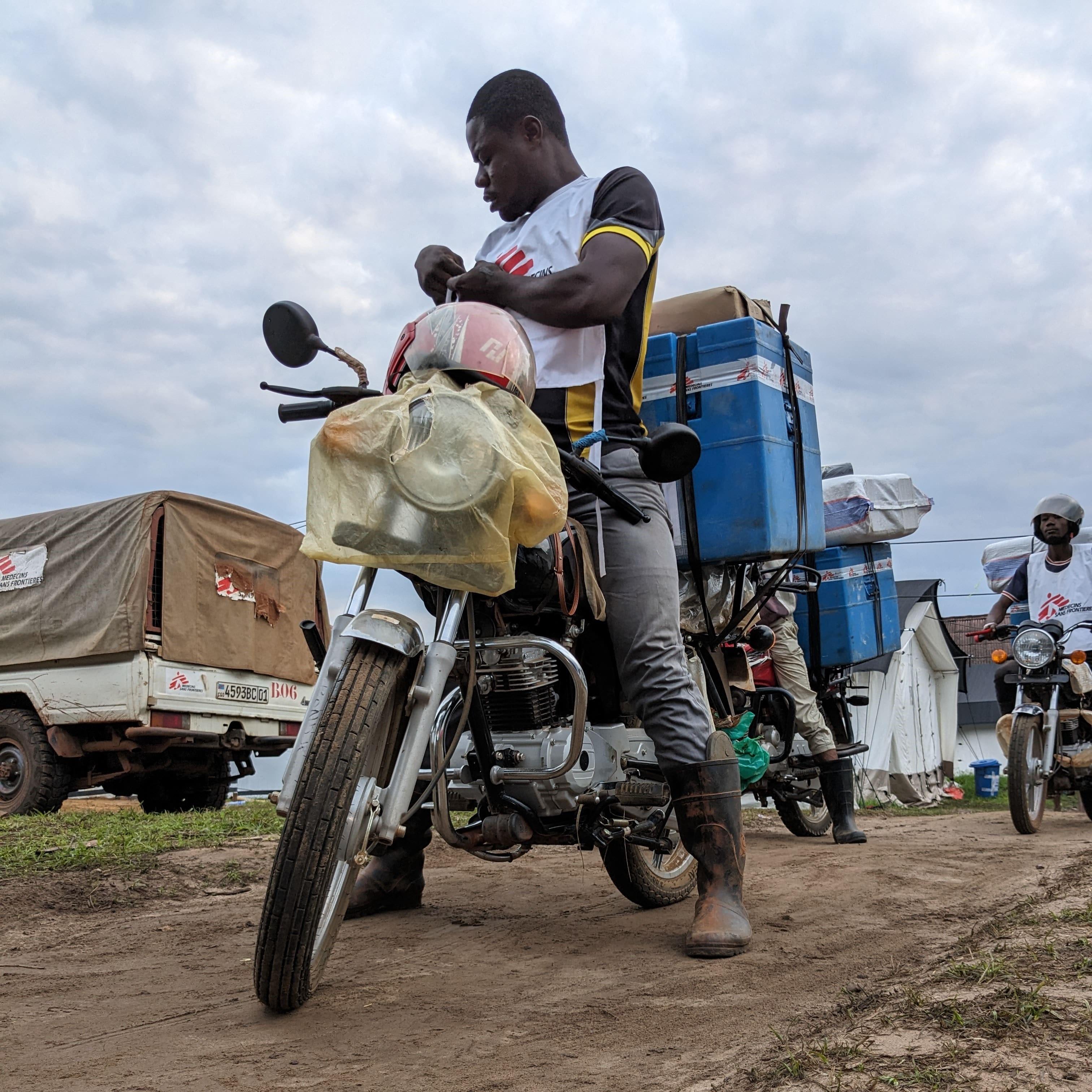
Organised in two phases between April 24 and May 13, MSF's vaccination campaign reached 62,645 children aged six months to nine years in the 18 health areas of Ingende, achieving nearly 100% coverage. In addition to the measles vaccine, 11,740 children received vaccinations for diphtheria, tetanus, whooping cough, hepatitis B, Haemophilus influenzae type b, and pneumococcus with pentavalent and PCV13 vaccines.
MSF emergency teams also treated 649 children with measles and over 1,000 children with malaria or severe acute malnutrition. The MSF emergency team rehabilitated the borehole at the Ingende HGR, which had been nonfunctional for over six months.
The Urgent Need to Improve Measles Control
Measles epidemics in the DRC have persisted for years with high fatality rates due to inadequate routine vaccination and supplementary immunization activities. In 2023, over 300,000 measles cases were recorded, resulting in nearly 6,000 deaths.
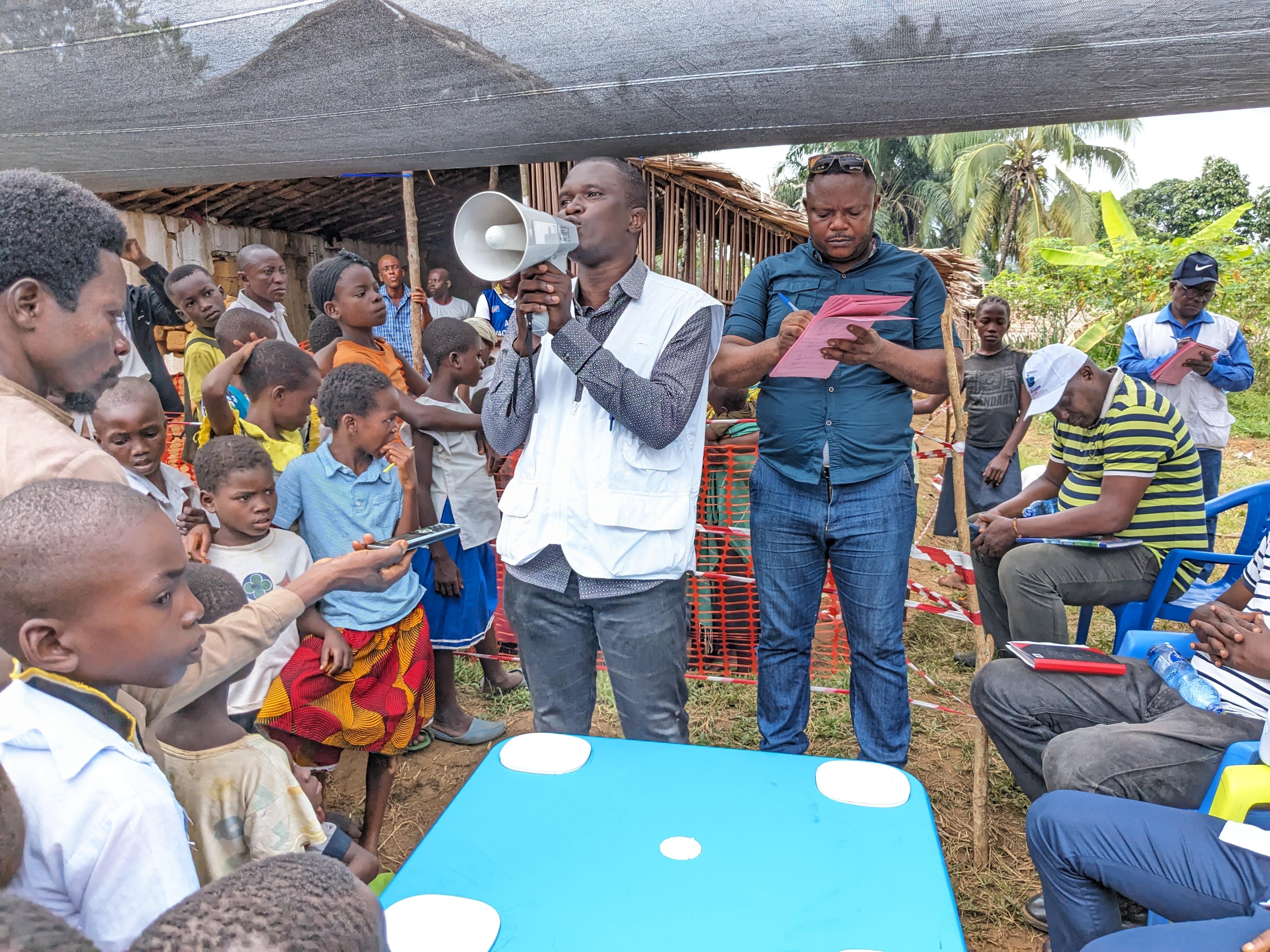
"The security and humanitarian challenges in the DRC, particularly in the east, must not overshadow the critical need to combat measles," says Jean-Jacques Stéphane Nfon Dibie. "Measles remains a mass killer and the emergency response to this disease represents the majority of MSF's emergency interventions in the country. It's vital to mobilize all efforts to strengthen the response, from routine vaccination to SIA campaigns. It's a difficult but crucial battle to save thousands of children."
In 2023, MSF responded to several measles outbreaks in the DRC, vaccinating over 1.6 million children and treating 46,348 patients.
